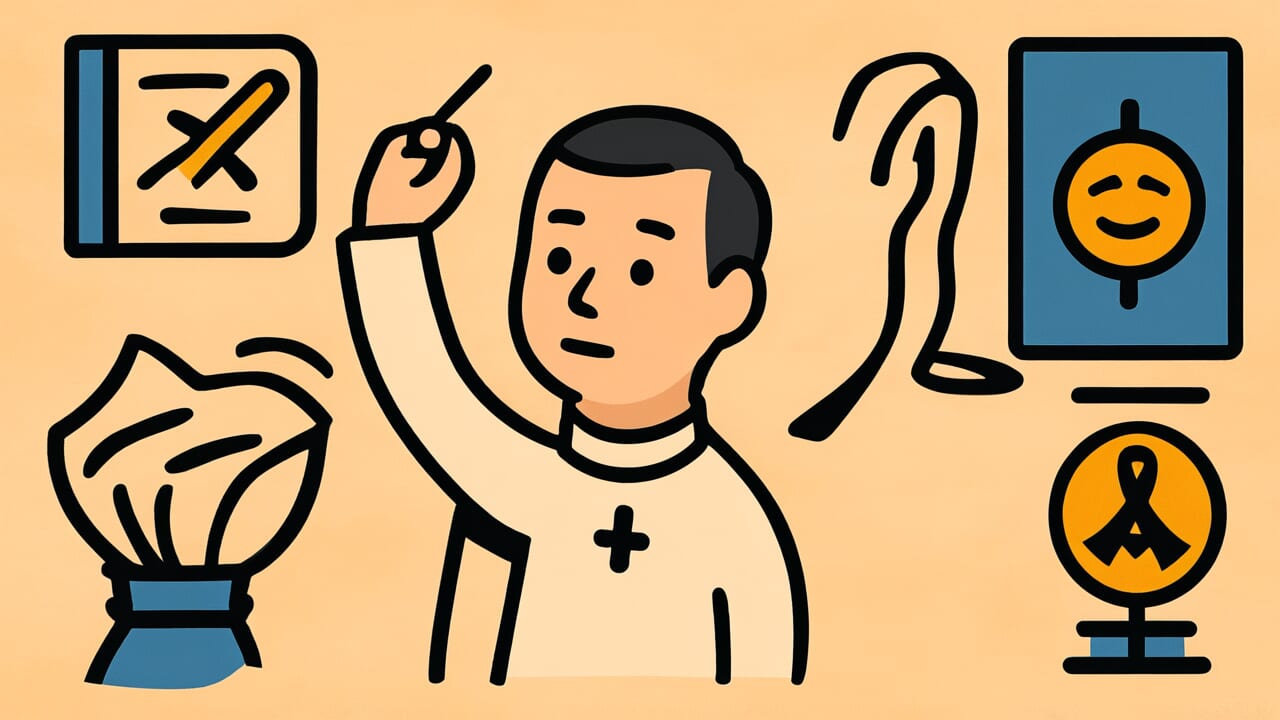How to Read “Skill is the enemy of one’s body”
Gei wa mi no ada
Meaning of “Skill is the enemy of one’s body”
“Skill is the enemy of one’s body” means that talents and abilities can sometimes bring trouble to those who possess them.
Having excellent skills or special talents is usually a good thing. But these abilities can cause problems too.
Skilled people may face jealousy from others. They might be exploited or have too many expectations placed on them. This can push them into difficult situations.
This proverb points out the ironic reality that talented people face. For example, capable workers often get piled with harder and harder tasks until they burn out.
People with special skills get asked to do extra work outside their main duties. Some dedicate themselves so completely to their craft that they can’t make a living.
Others face sabotage from jealous rivals. Even in modern society, being excellent can create friction with others.
Highly capable people often get burdened with excessive workloads. This proverb teaches us that talent and ability don’t always lead to happiness.
It reveals the complex nature of life itself.
Origin and Etymology
The exact origin of this proverb isn’t clearly documented. However, it was likely already widely used during the Edo period.
Looking at the structure, “gei” means skill or talent. “Mi” means oneself or one’s body. “Ada” means enemy or misfortune.
This expression probably emerged from the harsh realities in Japan’s world of performing arts and craftsmanship.
During the Edo period, people with excellent skills could certainly gain fame. But at the same time, their talent often brought jealousy.
Powerful people would notice them and make unreasonable demands. Some became so absorbed in perfecting their art that they fell into poverty.
The choice of the word “ada” is particularly noteworthy. Instead of simply saying “disaster,” the proverb uses “ada,” which suggests conflict and opposition in human relationships.
This shows that problems caused by talent aren’t like unavoidable natural disasters. They arise from the complex dynamics between people.
The proverb captures both the light and shadow of possessing skill. It reflects the keen observations of our ancestors, condensed into these few words.
Usage Examples
- He’s good at English, so everyone always asks him to interpret, and he can’t get his real work done—truly “skill is the enemy of one’s body”
- Because I can program, I get called in even on weekends—this is exactly what “skill is the enemy of one’s body” means
Universal Wisdom
“Skill is the enemy of one’s body” contains deep insight into the complex relationship between ability and happiness in human society.
We instinctively aim to excel. We believe that improving our abilities leads to happiness. But reality shows a contradiction—outstanding talent doesn’t always make its owner happy.
Why does this paradox exist? Because humans are social creatures. For us living in groups, relationships with others directly affect our survival.
Exceptional ability creates subtle distortions in these relationships. Jealousy, dependence, excessive expectations, schemes to exploit—various human desires swirl around talented people.
Furthermore, talented people themselves sometimes make wrong choices because of their abilities. They take on tasks because they can do them.
They can’t refuse requests because they’re good at something. They push themselves too hard seeking perfection because they’re skilled.
Ability sometimes becomes chains that bind its owner rather than setting them free.
This proverb has been passed down through generations because it touches on a fundamental human dilemma.
We seek ability while suffering under the burdens it brings. This contradiction is the unchanging human condition across all eras.
When AI Hears This
Having ability is originally a “dominant strategy” in game theory terms. That means a choice that benefits you no matter what the opponent does.
But in human society, the very existence of a player with a dominant strategy changes the game’s structure.
Let’s look at this concretely. Suppose you have excellent abilities. Even in a “cooperative game” where cooperation normally benefits both sides, the other person starts seeing your ability as a threat.
Then the opponent’s payoff matrix gets rewritten. When cooperating, they add a negative evaluation of “my position is threatened.”
As a result, obstruction or exclusion becomes more rational for them than cooperation.
This is a variation of the prisoner’s dilemma. Originally, mutual cooperation gives payoff 3, betrayal gives 1.
But the existence of an ability gap makes the less capable side perceive “even if I cooperate, I lose relatively.” Then the cooperation payoff effectively drops, making betrayal more attractive.
What’s more interesting is that hiding your ability doesn’t solve the problem either. The strategy of concealing ability creates an “incomplete information game,” generating suspicion in the opponent.
Whether shown or hidden, the very existence of superior ability shifts the game’s equilibrium point in an unfavorable direction. This is the paradox of the dominant strategy.
Lessons for Today
This proverb teaches modern people that both having abilities and maintaining a healthy distance from them are important.
Polishing your talents and skills is wonderful. But staying someone who isn’t controlled by them is equally important.
If you have something you’re good at, that’s certainly valuable. But the right to decide whether to use that ability belongs to you alone.
Just because someone asks doesn’t mean you must respond to everything. Protecting your time, energy, and peace of mind isn’t selfish.
It’s wisdom for continuing to demonstrate your abilities long-term.
Also, if talented people are around you, we should be careful not to exploit their abilities as if they were natural resources.
A structure where capable people bear increasing burdens ultimately benefits no one.
What matters is living in a way where you have abilities but aren’t dominated by them. Talent is a tool to enrich life, not life itself.
With this perspective, your abilities become true treasures rather than misfortunes.



Comments